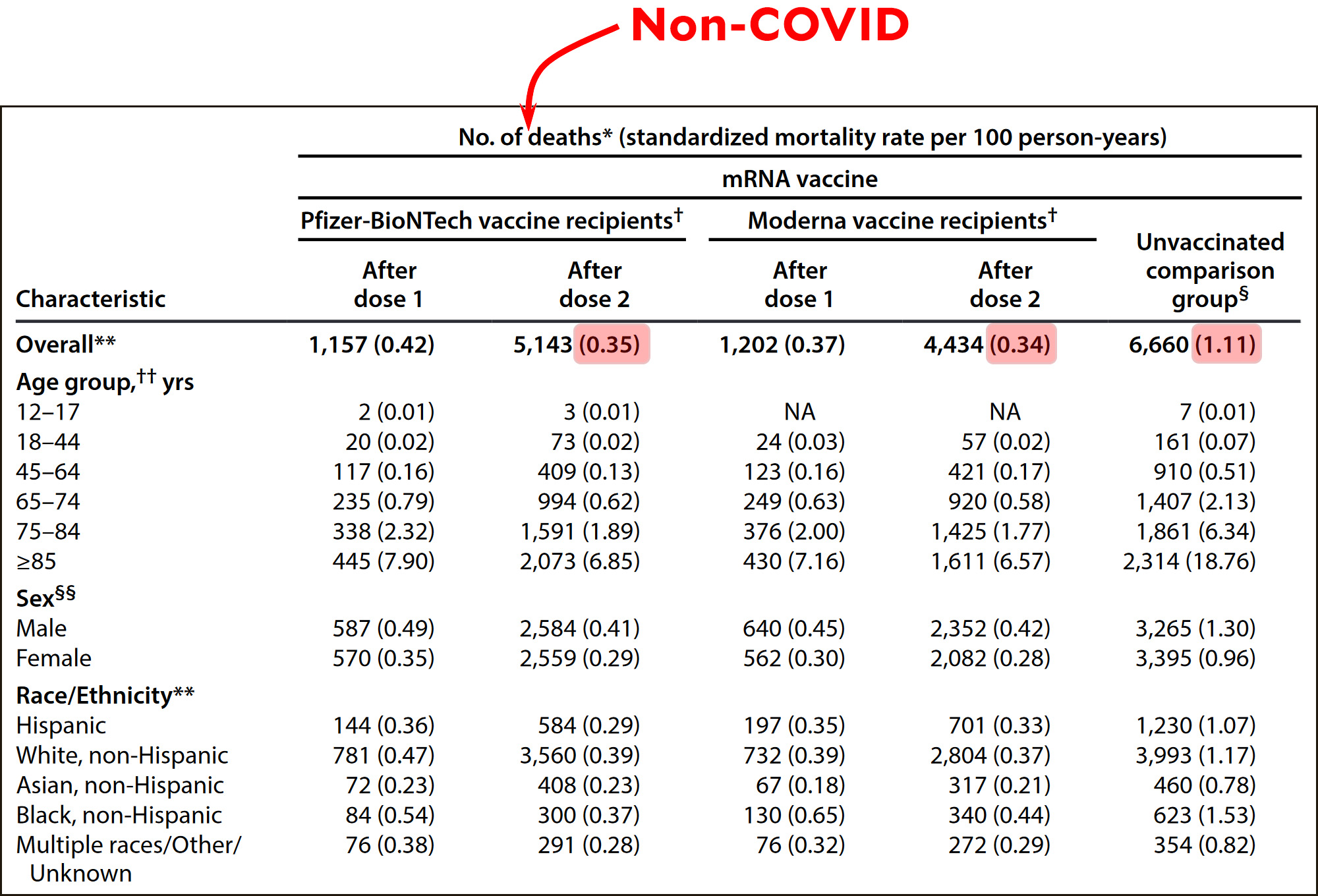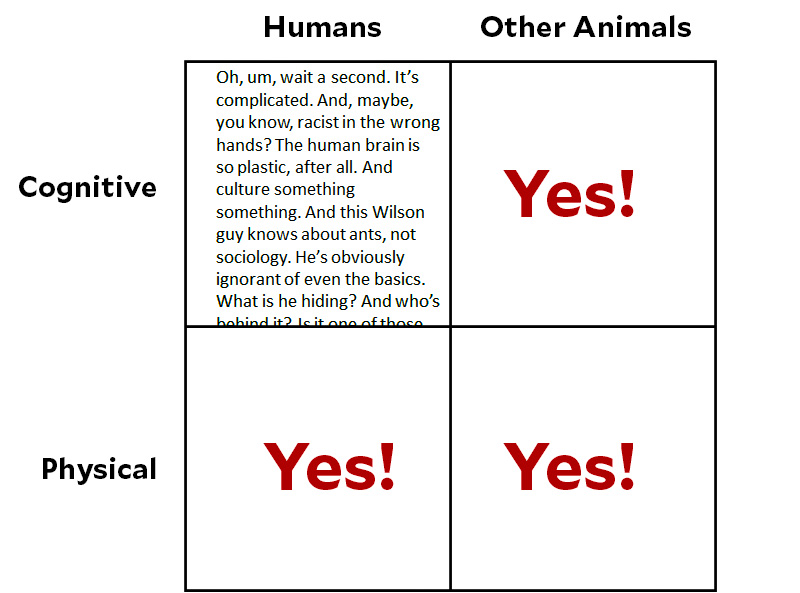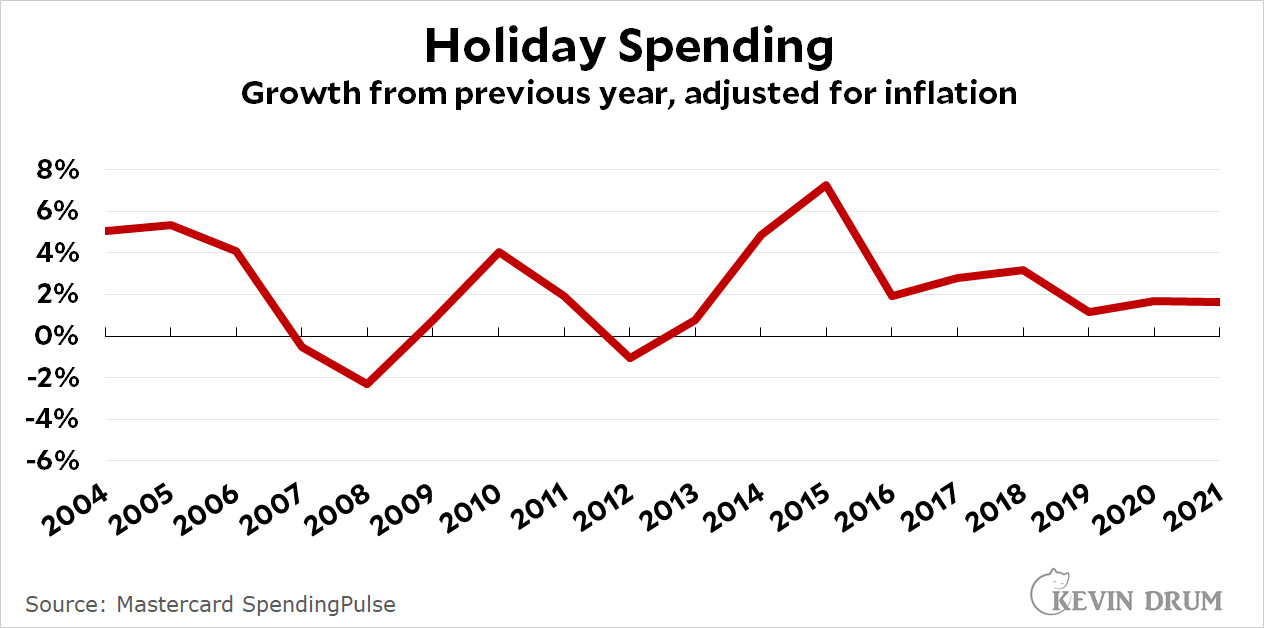A reader brought to my attention a CDC study of COVID-19 from late October that compared the mortality rate of vaccinated people vs. unvaccinated people. However, this study didn't do the usual boring thing and investigate deaths from COVID. It investigated deaths from non-COVID causes. Surprisingly, it turned out that mortality from non-COVID causes was way lower for people who had been vaccinated with either the Pfizer or Moderna vaccines:
 The standardized mortality rate from non-COVID causes was about 0.35 for vaccinated people vs. 1.11 for non-vaccinated people. This disparity held for all age groups, all races and ethnicities, and for both men and women. The disparity was biggest among the Black community: the unvaccinated mortality rate was more than 4x that of the vaccinated.
The standardized mortality rate from non-COVID causes was about 0.35 for vaccinated people vs. 1.11 for non-vaccinated people. This disparity held for all age groups, all races and ethnicities, and for both men and women. The disparity was biggest among the Black community: the unvaccinated mortality rate was more than 4x that of the vaccinated.
I am suspicious of these results, but not because I have any specific objections to the data gathering or the statistical analysis. Somebody with access to the raw data would have to comment on that.
However, I'm routinely suspicious of studies that show gigantic results. I mean, if these vaccines had some odd property that reduced your mortality rate by 10% or 20% or so, I might buy it. But 3x or more? That's beyond belief.
There's also this: I couldn't find any critiques of this study. Why? If these results are real, every medical researcher in the world should be gobsmacked. Money should be pouring into research labs that want to investigate what's going on. But that doesn't seem to be the case. These results were reported fairly widely when the study came out, but the mainstream press mostly ignored it and after that it disappeared. This makes no sense.
If this study is true, it's yet another great reason to get vaccinated—and to get happily boosted every year. But I would hold on for some independent confirmation before I started celebrating.







